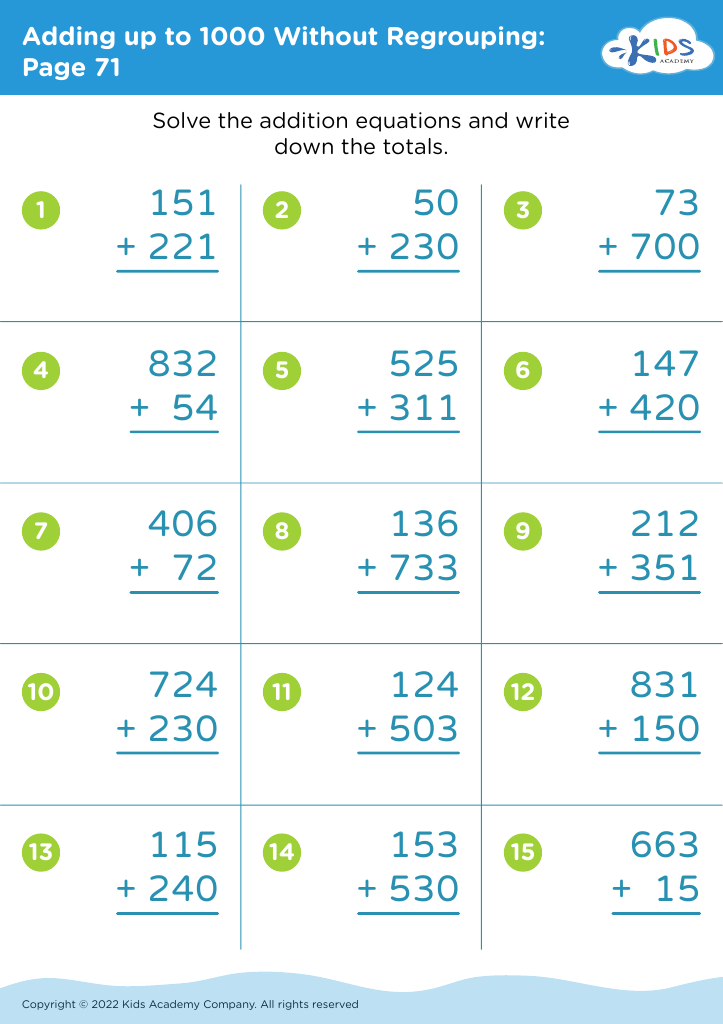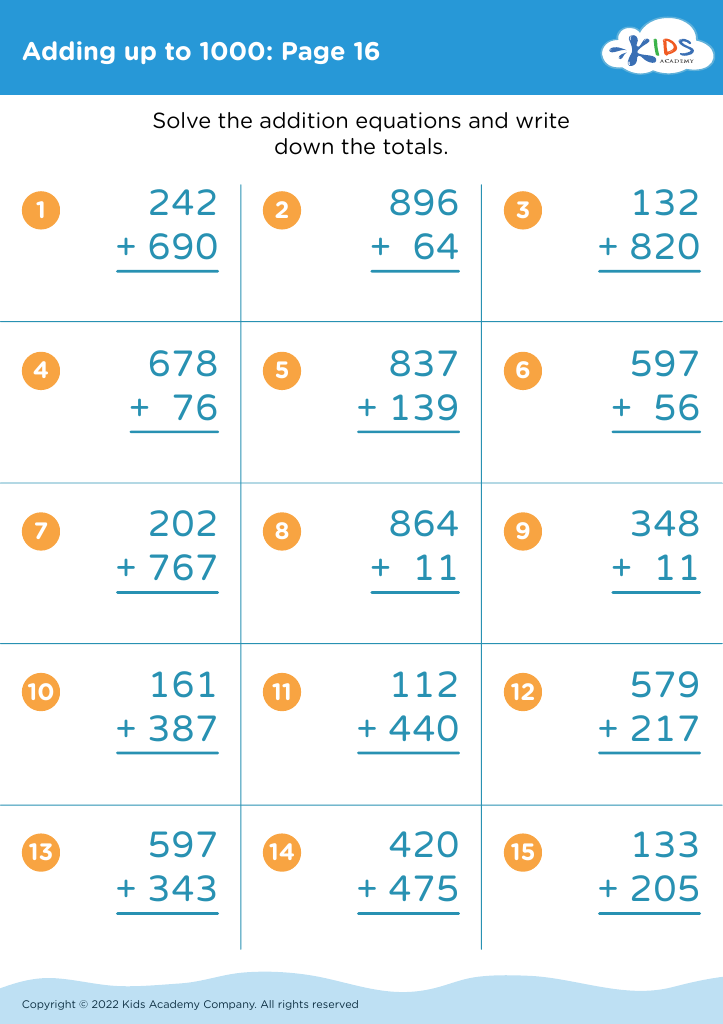Improve counting Worksheets for Ages 3-7
3 filtered results
-
From - To
Discover our engaging Improve Counting Worksheets tailored for children ages 3 to 7! These printable resources are designed to enhance counting skills through fun activities that capture your child's interest. From simple number recognition to counting objects, each worksheet encourages hands-on learning and promotes early math skills. Perfect for parents and teachers alike, our worksheets support the developmental milestones essential for this age group. Transform counting practice into a delightful experience with colorful illustrations and interactive tasks. Help build a solid foundation in numeracy that will benefit your child throughout their education journey. Explore our collection and make counting enjoyable today!
Improving counting skills in children ages 3-7 is crucial for several reasons. First, counting forms the foundational basis for early math understanding, which is essential for later academic success. At this age, children develop number sense, and engaging them in counting activities helps enhance their ability to recognize, compare, and manipulate numbers. This skills development fosters critical thinking and problem-solving abilities.
Additionally, counting can support language development. When children verbalize numbers or engage in counting songs and rhymes, they are simultaneously improving their vocabulary and comprehension skills. Furthermore, counting can promote fine motor skills, especially through hands-on activities that involve objects or manipulatives.
Parents and teachers should also recognize the role of counting in daily life experiences—like counting toys, snacks, or steps—which makes math relevant and engaging. Collaborative counting exercises encourage bonding and social interaction, reinforcing a positive attitude towards learning.
Ultimately, emphasizing counting not only uplifts mathematical proficiency but also boosts self-confidence. As children master counting, they gain a sense of achievement that empowers them to tackle more challenging concepts in mathematics and other academic areas. Therefore, fostering counting skills in early childhood is an investment in their overall learning and future success.



















